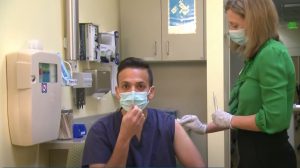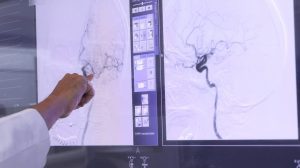NEW YORK (Reuters Health) – The progestin dienogest is as effective as the gonadotropin-releasing hormone agonist buserelin for symptoms of endometriosis, with less reduction in bone mass, physicians in Japan report in the March issue of Fertility and Sterility.
Noted for its high selectivity for progesterone receptors and its antiproliferative activity in isolated human endometrial cells, dienogest also inhibits cytokine secretion from endometriotic stromal cells, lead author Dr. Tasuku Harada, at Tottori University School of Medicine, Yonago, and colleagues explain.
Their 24-week phase III trial involved 271 women (mean age 34 years) who were randomized in a double-blind, double-dummy manner to treatment with oral dienogest 1 mg after morning and evening meals or to intranasal buserelin spray 300 µg every morning, noon and evening.
The two drugs were equally effective in relieving all five documented symptoms during nonmenstruation – lower abdominal pain, lumbago, defecation pain, dyspareunia, and pain on internal examination. There were also substantial improvements in bodily pain on the Short Form-36 Quality of Life scores (22.2 for dienogest and 18.5 for buserelin).
Fewer patients in the dienogest group reported hot flushes and more reported genital bleeding, due primarily to spotting or breakthrough bleeding, which resolved over time.
Dienogest also resulted in less loss in bone mineral density by the end of the trial (-1.0% vs -2.6%, p = 0.003), which Dr. Harada’s group attributes to the higher serum concentration of estradiol during dienogest treatment.
“The present findings suggest that dienogest may become a new therapeutic alternative for endometriosis,” the investigators conclude.
Reference:
Fertil Steril 2009;91:675-681.




